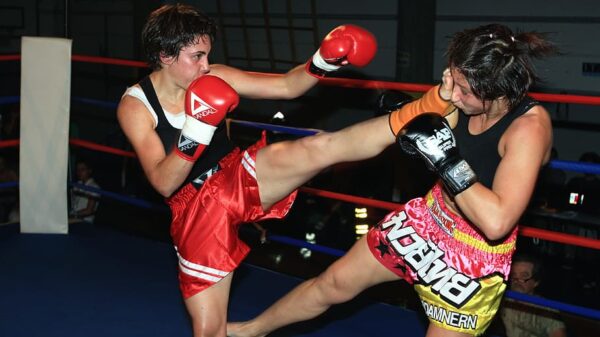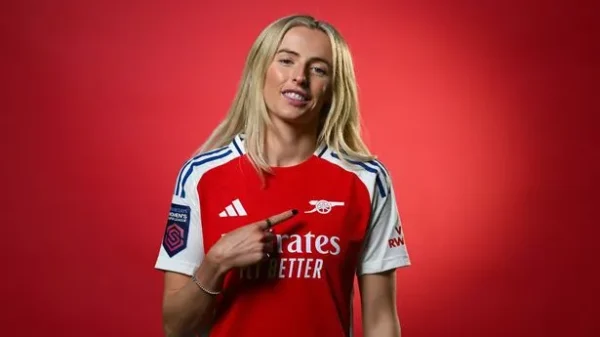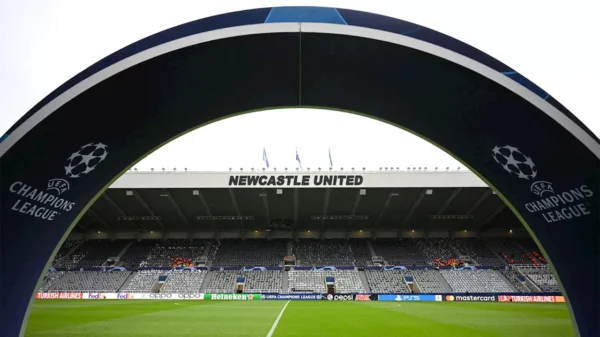Staff Writer Grace Holloway writes how despite recent successes, women’s football is still far from equal with the men’s.
Women’s football has become increasingly more popular since the 2021 Euro’s victory. Last season saw the WSL (Women’s Super League) break record attendances on a regular basis.
However, the wider picture is more bleak for the game, with only a handful of clubs benefiting from this increased attention. For most Women’s teams, they have still not received equal treatment and equal respect from their clubs. When things have seemed to become more equal, behind the scenes this is definitely not the case.
While English fans watch the Euros in suspense, it seems to be forgotten that the Lionesses won it just two years before. Recent developments have shown from the top WSL teams to the bottom lower League teams, Women’s football still falls dramatically behind the men’s game.
Why things were looking up
In the last few seasons, the women’s game has truly taken off, with the historic Euro’s victory bringing higher media attention to English women’s. Attendances reached their highest level yet, with Arsenal selling out the Emirates twice and the Women’s FA Cup final selling out Wembley Stadium.
Chelsea have also given the women’s team equal standing with the men’s team within the club. As part of their new strategic plan, they are increasing investment and resources into the women’s team due to its successes in recent years.
More and more women’s teams have also become professional, meaning that football can become players’ full-time jobs offering them much higher financial stability. Nottingham Forrest is the latest lower league team to make the push, offering their players full-time contracts with the hope to be promoted to the women’s championship.
Throughout lower league and grassroots football, diversity and inclusion has excelled, pushing women’s teams to their highest level yet. Female youth teams have increased by 39 percent, in the last year, with now 93 percent of Country FA offering a girls’ league. The pathway into the sport for girls has never been easier.
Equal pay and equal treatment?
However, while things are looking up, behind the scenes many women’s football teams are still placed on the back foot.
Firstly, FA Cup-winning Manchester United struck controversy when they announced plans to push the women’s team into temporary training facilities while the Men’s team use the women’s due to the men’s having a major upgrade. New owner Sir Jim Radcliffe has been the spotlight of criticism, based on his overwhelming focus on what he called ‘The first team’. He missed the Women’s FA Cup final, and in a interview commented that his focus was solely the ‘first team’ (the men’s) rather than bringing equality to both sides.
Things are only worse in lower leagues. Blackburn rovers recently announced they are paying their female players minimum wage for the 24/25 season despite being in the women’s Championship. This means players will only receive about £9,000 a year or £11.44 an hour, with a collective budget of £100,000 yearly.
The Blackburn Rovers men’s team of 23/24 had a budget of over £13 million per year, with their top earner Arnor Sigurdsson earning double the women’s yearly wage each week at £18,000-a-week. There is a clear disparity and inequality between the two teams, with both being in the same equivalent leagues, displaying the gender pay gap still highly in force.
Women’s teams also seem to be facing the brunt of financial instability. Reading FC who have had their fair share of financial mishaps, have recently withdrawn their women’s team from the Championship in order to stay afloat. This has forced the competitive side to play three leagues below their current standard. While the club has been forced to do this to remain financially stable, the men’s team has not faced similar changes.
We also saw Thornaby FC drop their entire women’s section, by a committee decision due to supposed ‘financial constraints’. The decision saw the men’s team prioritised over the women’s team and left 100 players without a club. In future developments, the women’s team saw an outpouring of support and sponsorship opportunities which could have allowed them to remain part of the club.
What can be done
When striving for equality between the men’s and women’s teams, there are obvious issues. Women’s football does not receive the same media attention and popularity as the men’s does, resulting in reduced revenue and financial interest. This means from a business perspective to make the women’s game profitable and sustainable, their pay and level of investment are dramatically less than in the men’s equivalent sides.
The UK Government could help by increasing its intervention in the sport. Supporting the financial stability of English Football Clubs could prevent decisions such as the Reading FC decision to withdraw the Women’s team from their League. Financial stability and ownership are issues impacting a large variety of clubs, and is something the new Labour government has promised to look into. Hopefully we see increased support for Women’s sides in their future legislation.
There also needs to be a major change in the wages and contracts that are offered to female players. Firstly, changes to make more women’s teams professional would benefit female players by offering them the security they need. Secondly, paying above minimum wage is an essential change. When a club with both a women’s and men’s team at similar levels is paying the women half what some of the men’s players earn in a week, it needs to be rethought.
The men’s game, in England in particular, has a serious overwhelming problem with the amount of money players are being paid. The highest-paid Premier League player, Kevin de Bruyne earns almost £21 million a year. Surely, if men’s wages are reduced from the extortionate amount that they are, this could help ensure women’s team’s survival.
Don’t let them be forgotten
Despite achieving equal pay at a national level, England’s Lionesses are still not receiving the recognition they deserve.
In the build-up to the Euro’s final, many commentators have made mistakes praising Southgate for being the ‘Only England manager to reach two major international Finals’ when the English Women’s team manager Sarina Wiegman accomplished this just the year before. This comes after England Captain Harry Kane spoke out that ‘We haven’t won anything as a nation for a long, long time’, forgetting the Lionesses achieved victory at the Euros in 2022. This is something the England men’s team failed to achieve in 2021 and 2024.
The Lionesses’ victory cannot be forgotten, and their achievement to reach the World Cup final last year cannot either. When commentating on the achievements of England as a country in football, a simple use of ‘Men’s’ to describe the team would remove this controversy.
Overall the unequal treatment and recognition of the women’s game displays how little has really changed in English football. Unfortunately, women’s football is highly unlikely to ever achieve the same recognition and support as the men’s in this country. While this to some extent is understandable based on the history of the men’s game, the shocking pay and conditions women’s teams face even in the highest leagues need to be addressed.















